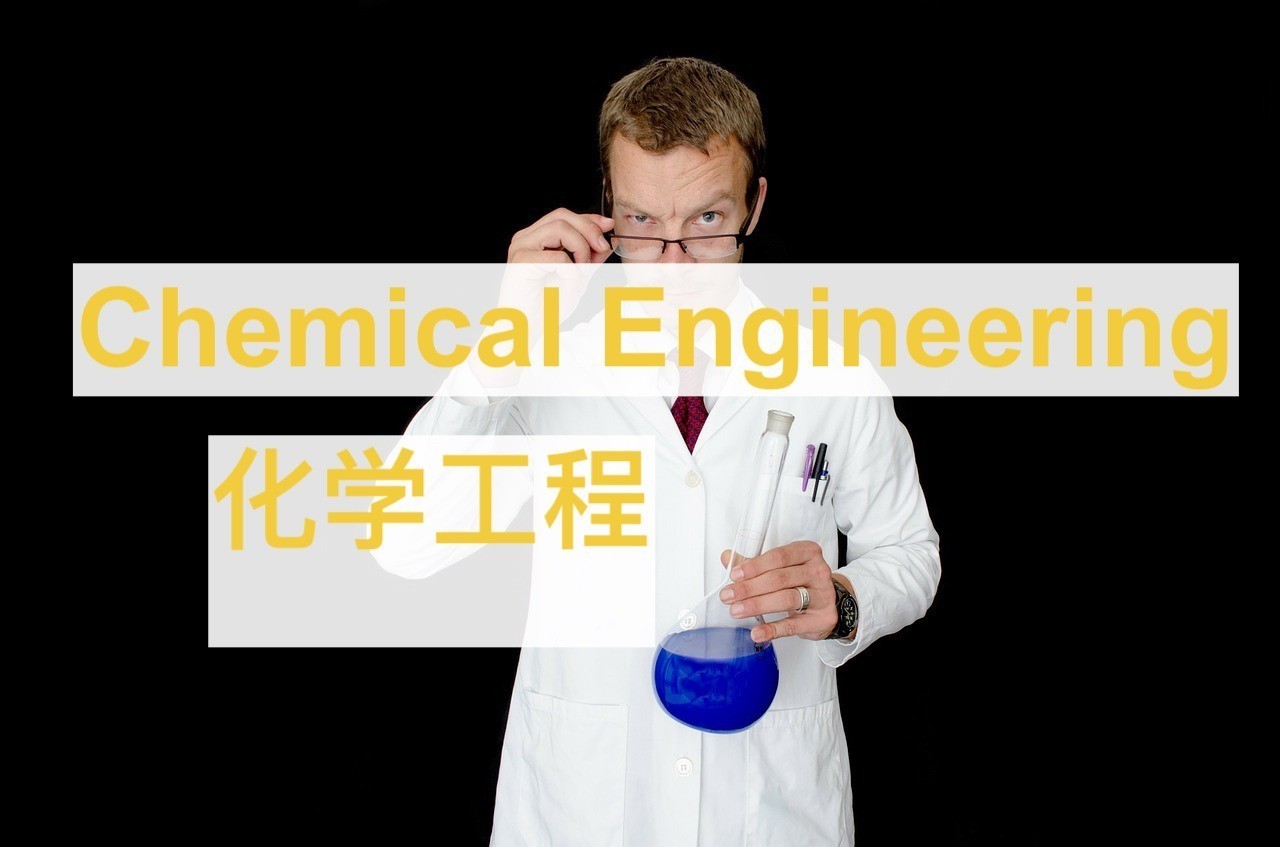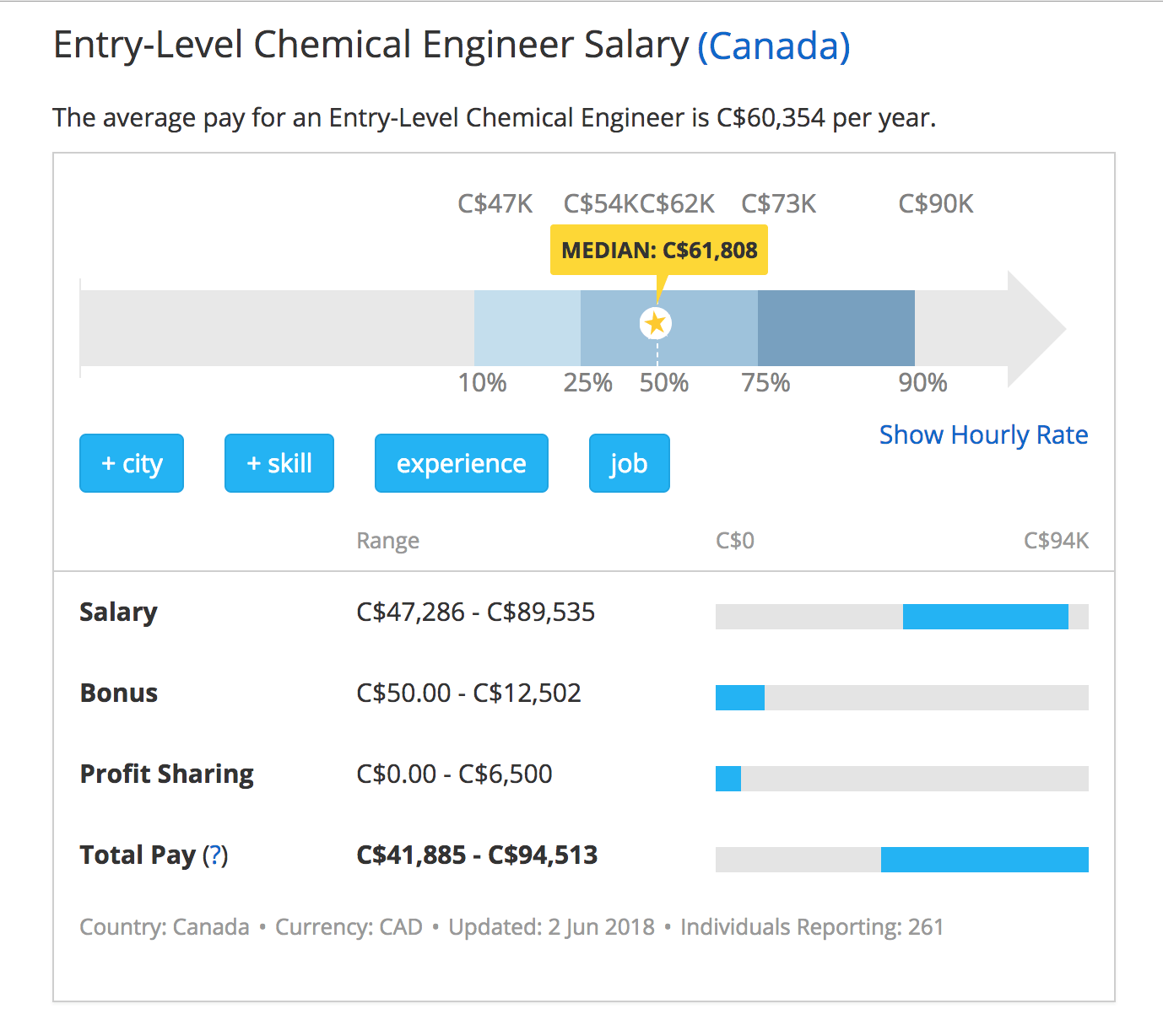[Introduction] By choosing a chemical engineering major, you can acquire the professional knowledge and skills needed to become a junior chemical engineer, and also a good foundation for other career paths. So, what are the employment prospects of studying chemical engineering in Canada? This article will give you an introduction to the professional courses, employment prospects, program rankings, professional skills taught, and the views of netizens and UtoCanada.
 Photo by Goh Rhy Yan on Unsplash
Photo by Goh Rhy Yan on Unsplash
Introduction to the Canadian Chemical Engineering major
Chemical engineering is a discipline that applies the principles of chemistry, biology, physics, and math to industrial production. Chemical engineers design processes and equipment for large-scale manufacturing, and improve and maintain mass production processes and facilities. For instance, they work for firms that manufacture plastic resins, which are used to increase fuel efficiency in automobiles.
Chemical engineering is applied to the production of industrial chemicals, ceramics, fuels, fertilizers, plastics, medicines, etc.
Also, chemical engineering will continue to migrate into dynamic fields, such as nanotechnology, alternative energies, and biotechnology, and thereby help to sustain demand for engineering services in many manufacturing industries.
Related articles of the engineering major:
Employment prospects of Canadian chemical engineering graduates
To obtain an entry-level chemical engineer type position, a bachelor's degree in chemical engineering (or a diploma in a specialist) is generally required. Including classroom, laboratory and field research, chemical engineering programs usually take 4 or 5 years to complete. If you want to further work as a consultant, professor, or researcher, in some cases, you may need a graduate degree (master or doctorate) in chemical engineering.
Many courses also require students to complete an internship to get a diploma. Regardless of whether the internship is necessary or not, we suggest finding one during school. After all, the internship experience is the key to successfully finding relevant jobs after graduation.
Many chemical engineers start from entry-level positions and are responsible for process development and other tasks. During this period, they usually complete different tasks under the supervision of more experienced chemical engineers; allowing them to gain professional experience and better adapt to the workplace. Once junior engineers have gained enough experience, they may become P.Eng through research (engineers in Ontario, click here) and then become a senior engineer.
Becoming a P.Eng usually means a salary increase and a promotion.
Senior chemical engineers with years of experience may enter production management positions and supervise an entire production unit. From there, they may enter operations management positions and be responsible for managing large industrial parks. In addition, chemical engineers with sufficient experience and/or education can also choose to engage in consulting work. Chemical engineering consultants can provide consulting services for companies or conduct consulting services as self-operated contractors.
》Get the license and certification for chemical engineers
You need toobtain a professional engineer’s (PE) permission (link to a government website)to directly oversee government projects and supervise other chemical engineers and engineering technicians. The person in charge of an engineering company needs to have the title of PE to sell their engineering services.
As a licensed professional engineer in Canada, the following conditions are usually required:
- A four-year bachelor's degree in a recognized engineering major
- A passing score on the Professional Engineering (PE) exam
- Relevant work experience, typically at least 4 years, and at least 12 months under the supervision of a professional engineer
- At the time of the background check, there are at least three recommenders
- Successfully completed the legal, professional ethics and professional recognition exams
》Jobs for chemical engineering graduates
The main task of chemical engineers is to apply the principles of chemistry to functional large-scale industrial systems.
Depending on their work location and job responsibilities, chemical engineers can apply their skills and knowledge to the following functions:
- Research/development of new products, from design, production, trial to commercialization
- Design and plan the layout of equipment for production
- Management of the scale-up process from small factories to full industrial-scale production
- Develop and optimize production processes
- Management of chemical, biochemical, pharmaceutical and material processing plants
- Troubleshoot problems in industrial process plants
- Design, test and operate quality and environmental control systems
- Choose the most suitable instrument to measure pressure, temperature, flow, and composition
- Design and develop new equipment to improve the process involved in converting raw materials into products
- Determine the cost-effective choice of production through economic evaluation
》Organizations employing chemical engineers:
Generally speaking, employers recruiting chemical engineering graduates include government agencies (local, provincial/state, or federal), private industry, or engineering consulting companies. Universities also hire them to teach the next generation of chemical engineers. In summary, organizations that hire chemical engineers usually include:
- Oil, gas and mining companies
- Green technology companies
- Instrumentation and control companies
- Engineering design companies
- Engineering consulting companies
- Manufacturers
- Environmental engineering companies
- R&D centres
- Plastic production companies
- Food and beverage production and packaging companies
- Educational institutions such as universities and colleges
》Chemical engineering graduate salary: The decisive factors & annual income
The salary level of a chemical engineer may vary depending on factors such as education level, years of experience, company and industry, and the position.
Salary of chemical engineers in Canada:
- According to Service Canada, the average salary of workers in the chemical engineering profession is $72,700 per year.
- According toPayScale statistics, the average income of entry-level chemical engineers in Canada is:
 (Source: PayScale)
(Source: PayScale)
》Three types of chemical engineering qualifications: college diploma, undergraduate degree, and graduate degree
Traditionally, Canadian chemical engineering credentials can be obtained in three ways:
- Chemical Engineering Specialist Diplomagenerally 2-3 years
- Bachelor's Degree:generally 4 years to complete
- Chemical Engineering Graduate Degreegenerally 2 years to complete
What do students learn in Canadian chemical engineering majors?
Academic fields such as thermodynamics, process control, and chemical engineering design courses are essential for future careers as chemical engineers.
- Introduction to Chemical Engineering: This course provides a comprehensive overview of the major. Training skills: the ability to use dimensional analysis; safety protocols used by chemical engineers; and economic factors to consider in the process of chemical engineering.
- Operations of chemical engineering in production: Explains the chemical process from an operational perspective. Training skills: Knowledge of different types of chemical engineering unit operations; understanding how to use different unit operation types for specific operations; analyze quality and heat transfer unit operations.
- Chemical Reaction Engineering: Under the basic theory of chemical reactions, students will be taught several types of chemical reactors. Training skills: determine the appropriate chemical reactor for a specific application; how to design and build a catalytic and tubular chemical reactor; learn how to design a chemical reactor
- Chemical engineering industry guidelines: how to work in accordance with industry guidelines, professional ethics and integrity in the engineering process. Training skills: understand the "big picture" and results of an action; learn about tools to assist in making decisions in line with industry standards; communication skills.
》What are the employable skills of chemical engineering graduates?
Once you graduate from the chemical engineering major, you need to prove that you have the following technical skills and abilities to be successfully recruited.
The following is a list of qualities that companies look for when recruiting chemical engineers:
- Mathematical ability
- Project management skills
- Ability to analyze data, review calculations and prepare cost estimates
- Ability to work within budgets and deadlines
- Full understanding of the relevant laws and regulations
- Applicability of general construction methods and materials
- Ability to read blueprints, schematics, site drawings and plans
- Proficiency in basic Microsoft Office applications
- Ability to study complex technical problems and find innovative solutions
The best schools for the chemical engineering major
According toMacLean's latest program rankings of Canadian universities, the rankings of engineering programs are as follows:
1、University of Toronto (Engineering major)
2、University of Waterloo(Engineering major)
3、UBC(Engineering major)
4、University of Alberta(Engineering major)
5、McGill University(Engineering major)
6、University of Ottawa(Engineering major)
7、 Queen’s University(Engineering major)
8、Université de Montréal(University of Montreal Engineering major)
9、McMaster University(Engineering major)
10、University of Calgary (Engineering major )
11、University of Victoria (Engineering major)
12、Université Laval (Laval University - French institution)
13、Ryerson University(Ryerson UniversityEngineering major)
14、 University of Saskatchewan(University of SaskatchewanEngineering major)
15、Western University (Engineering major )
16、York University (Engineering major)
17、Dalhousie University (Dalhousie UniversityEngineering major)
18、Lakehead University (Engineering major)
19、Simon Fraser University(Engineering major)
20、Concordia University(Engineering major)
Summary: UtoCanada's views on the chemical engineering major
We cannot emphasize enough: before choosing a major, you must make sure that you are really interested in the subject and that you have potential in this area. If the following description applies to you, then chemical engineering may be the job for you. First, consider these characteristics:
- Those who become chemical engineers are emotionally stable because this is necessary for short-term and long-term tasks. They must also have talents in various academic fields such as chemistry, physics, and engineering.
- Chemical engineers must learn the broad concepts of chemical engineering and be able to apply these concepts to troubleshoot production problems. They must be fascinated in solving complex production-related problems and be able to visualize complex processes and equipment functions.
- They need to be able to work in a laboratory or processing plant environment, and must be able to effectively communicate their findings and opinions to others.
If you think you have what it takes, then you may become a successful chemical engineer. We recommend that you be prepared for the following aspects during your university:
- Learn the skills in your major and earn a good-looking transcript
- Develop necessary soft skills (including, improve your English through various methods before graduation)
- Create your own portfolio
- Establish a network in the chemical engineering field
"Learn the skills within the profession," your parents will constantly say this to you. So, we won't need to say much here. Let’s focus on a few other things.
》“Soft skills” to be acquired during the university
If you want to become a chemical engineer, in addition to professional skills, you will need the essential soft skills to work effectively in the workplace. Without these soft skills, it is very difficult to perform key job functions.
Some soft skills are:
- English language proficiency
- Ability to analyze large amounts of data
- Ability to make decisions with confidence
- Ability to explain design ideas and plans clearly and verbally
- Good teamwork ability
- Excellent logical thinking and problem solving skills
- Ability to balance the overall situation and details
》Establish a portfolio
The portfolio can help display the areas you really have experience in. The portfolio is actually more detailed than your resume, and it shows your skills and potential to employers. At present, there are many portfolio-building platforms (such as WordPress or Mix) and tutorials on the market. You can easily build your own personal portfolio website.
So, what should you include in your engineering portfolio to best reflect your ability?
- A brief self-introduction:focus on your strengths, educational background and qualifications
- A resume with a focus on engineering:remove irrelevant work experience
- Detailed information about your coursework, internships and the projects you are working on
- Letter of recommendation:or reference letter from the institution where you worked/interned (if you have just left school, a letter of recommendation from your internship employer or your professor is the best choice for establishing credibility)
- Examples of projects you have participated in or other skill demonstrations:this is an opportunity for you to be creative.
》Build your professional network in the field
Sometimes, what matters is not what you know, but who you know. In North America, the workplace is also very particular about personal referrals. When someone mentions you at the right time and place, it is better than you submitting a hundreds of resumes.
You may be thinking: How can I effectively expand my network in this field while still studying at school? You can refer to the following ideas:
- Alumni Association:Your alumni association is a good place to start establishing engineering contacts. Most universities and colleges will have an alumni association that you can join. The benefit of joining the alumni association is that you connect with people who have worked in your industry
- Professors and classmates:Don't underestimate the value of building relationships through your school years. Professors often work on-site before or outside of their teaching hours and may provide you with advice on where to find work. They also see countless other students graduating and know well about how previous students found employment after graduation. They are also very informative, just like your classmates who work withyou on projects.
- Canadian Society for Chemical Engineering:In Canada, every province has a professional association that engineers can join. In addition to government-regulated associations, there are other associations in many fields worth joining. For example, as a chemical engineer, you may find that the local association in your field pays more attention to your interests and career goals. These associations often have resources to help its members to network or find jobs.















